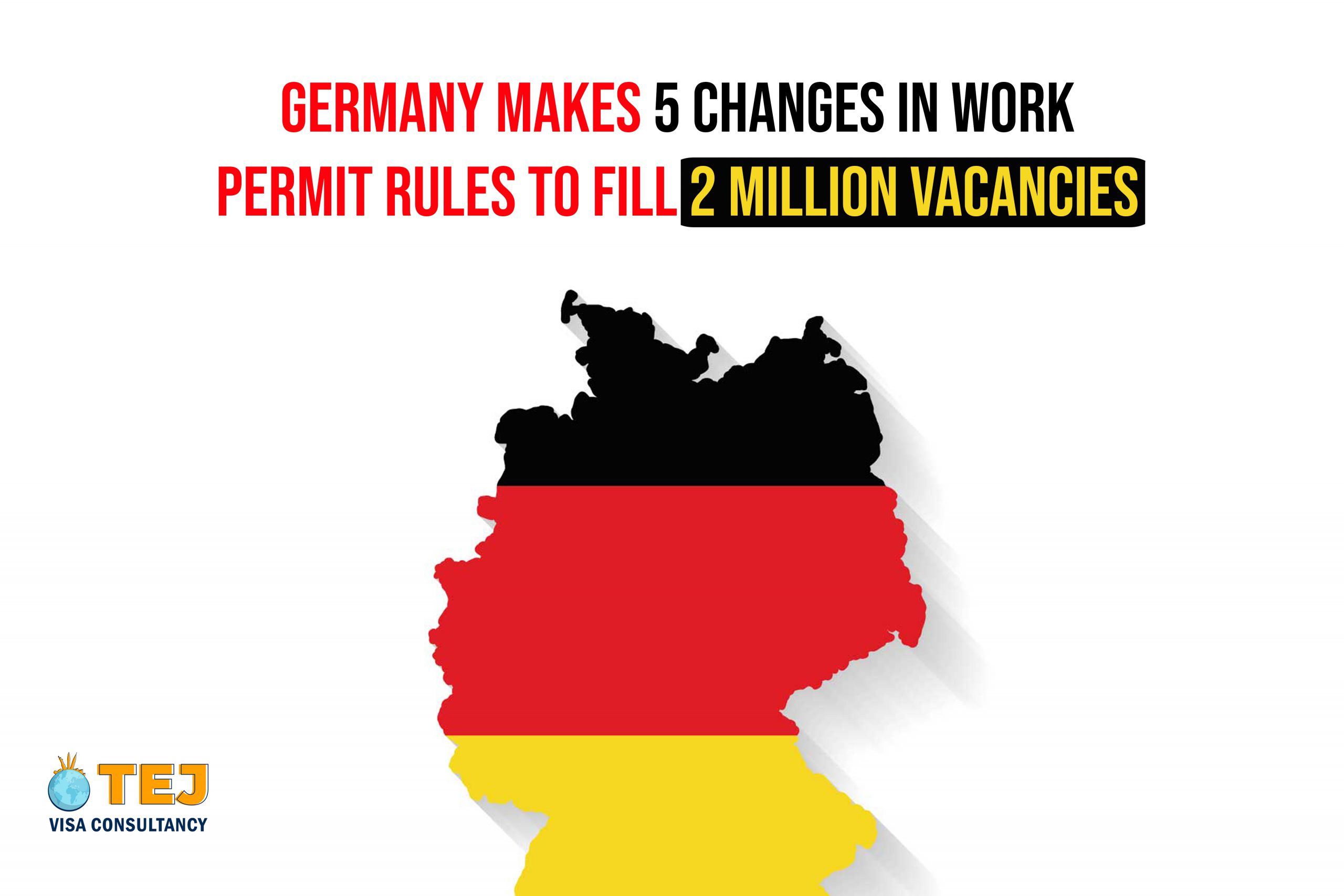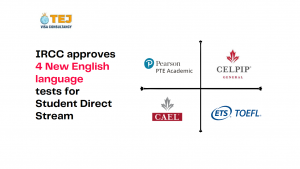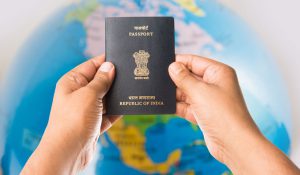Germany makes 5 changes in work permit rules to fill 2 million vacancies

- Germany has to make five changes to its work permit rules to speed up the visa issuance process to fill vacancies and is drawing up new legislation to make the country more attractive to foreign workers.
- The new law aims to address key hurdles for migrants to Germany, including the complex process for the recognition of educational credentials.
- Germany, like industrialized countries around the world, is facing deep labor shortages, particularly in skilled high-growth sectors, which are taking their toll on an economy that could yet face a recession this year.
- German Chancellor Olaf Scholz said that his government wants to ease the path for Indian IT experts to obtain work visas in Germany.
Five changes to be made by Germany to fill vacancies
1 – Opportunity Card for job seekers:
Foreigners who haven’t found a job in Germany from their home country will soon be able to move in Germany first, and then find a workplace.
This will be made possible through the Opportunity Card, a one-year valid jobseekers visa, which will be issued to foreigners according to a points-based system, which will evaluate the applicant’s qualified employment.
With this visa, foreigners will be able to work in trial or secondary employment.
2 – make the EU Blue Card more accessible:
Germany wants to make the EU Blue Card can now be accessed by a higher number of specialists holding a university degree.
It also wants to make itself more alluring for foreigners to come for vocational training or study and to stay on for further education or work.
The EU Blue Card is an EU residency document granted by the Member States individually, to highly-qualified workers from outside the EU. The document grants its holder with the right to live and work in an EU country, provided they have higher professional qualifications, such as a university degree, and an employment contract or a binding job offer with a high salary compared to the average in the EU country where the job is.
After initial work in the EU country that issued the Blue Card, its holder has the right to move and work in other countries, later on.
3 – Scrap the need for formal recognition of university degrees:
Germany wants to let third-country citizens move in and work in their field of expertise without having to undergo the procedures for formal recognition of their degree and professional qualification.
In Germany, the process of recognition allows job seekers to compare their existing qualifications with the closest German degree equivalent. It’s an official process that is mandated by Federal law, so there isn’t much room for ambiguity. And if your degree doesn’t measure up, an additional study may be needed.
However, Germany mandates foreign workers to be offered a salary above the set threshold to ensure fair working conditions and pay for foreigners.
4 – Let workers get professional qualifications recognized after arriving:
The German government wants to make the process possible for migrants who wish to have their foreign professional qualifications recognized in the country.
The government believes that such a change will enable employers to hire foreign specialists more quickly. It will also be easier for the workers to have their qualifications recognized once they begin working in qualified employment.
5 – Allow short-term employment:
To meet temporary needs, the government wants to let employers higher people from outside Germany for short-term periods.
Yet, the number of workers that will be hired this way will be capped, while the collective agreements and compulsory social security will ensure the protection of short-term employees.






